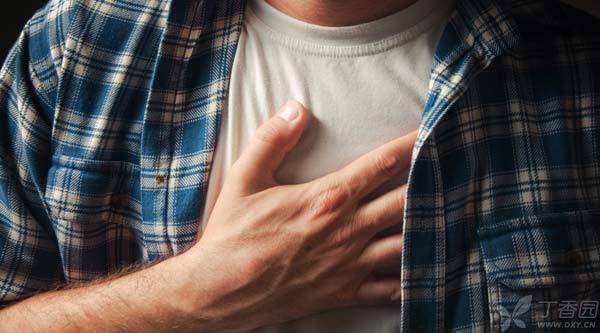
Digestive substances with sour taste flow back from the stomach to the pharynx or oral cavity, which is really not pleasant…
Many people regard [acid regurgitation] as a physiological phenomenon. In fact, they may have suffered from a very common disease-gastroesophageal reflux disease.
This disease is not uncommon. According to the statistics of questionnaires in Beijing and Shanghai, one in about 20 people suffers from this disease.
Is this what?
Gastroesophageal reflux disease, as its name implies, is a disease in which half of the food digested in the stomach will flow back to the esophagus and even the oral cavity.
The most common symptoms of the disease are heartburn and acid regurgitation.
Heartburn: refers to the burning sensation behind the sternum, which often occurs about 1 hour after meals.
Acid regurgitation: Patients with acid regurgitation problems will feel a heat flow from bottom to top to the middle of the chest, with burning and tingling sensations.
Some patients will also suffer from chest pain, dysphagia, or cough, pharyngeal discomfort, chest tightness, palpitation and other non-digestive tract symptoms.
Clinically, people often go to the cardiovascular internal medicine department due to chest pain, chest tightness and palpitation, and finally are referred back to the digestive internal medicine department to diagnose gastroesophageal reflux disease.
Why is this happening?
Under normal circumstances, the esophagus works like this:
Peristalsis slowly delivers swallowed food to the lower end of esophagus. At this time, the lower esophageal sphincter at the lower end relaxes, allowing food to enter the stomach. When food enters the stomach, the lower esophageal sphincter recovers its tension and holds the entrance to prevent food from flowing back into the esophagus from the stomach.
This muscle is like a gate. After food passes through, the gate should be closed. If it is not closed tightly, coupled with sometimes too much pressure in the door, it will cause food to return to the esophagus and cause discomfort.
Therefore, when the lower esophageal sphincter of [closing the door] relaxes for some reason, accompanied or not accompanied by increased intragastric pressure (overeating, delayed gastric emptying, etc.) and increased intraabdominal pressure (pregnancy, ascites, weight-bearing work, etc.), reflux symptoms will occur.
In addition, abnormalities in esophageal peristalsis and saliva secretion, as well as damage to digestive tract mucosa, can also lead to the occurrence of the disease.
How?
Doctors will make a comprehensive analysis and judgment according to the symptoms, combined with gastroscopy, pH monitoring and other examination results. Experimental treatment with drugs that inhibit gastric acid, if it can obviously relieve the symptoms, is also helpful to diagnose the disease.
It should be emphasized that early esophageal cancer can also be manifested simply by heartburn and reflux, which are typical symptoms of gastroesophageal reflux disease. Therefore, if the above situation exists, don’t endure it, go to the digestive internal medicine department in time and listen to the doctor’s advice.

What should I do if I burn my heart and turn back to acid?
After the diagnosis of gastroesophageal reflux disease, most patients need systematic drug therapy.
Doctors will choose to take medicine for a long time, a short time or when symptoms occur according to individual conditions.
The preferred drug is acid-making drug. Generally, various drugs called [prazole] (proton pump inhibitor) are selected to play a therapeutic role by inhibiting gastric acid secretion and reducing the acidity of gastric contents.
For some patients with severe nighttime attacks, some doctors will also instruct them to add a kind of drug called [tidine] (H2 receptor blocker) before going to bed.
According to the specific situation, gastrointestinal motility promoting drugs, such as cisapride; Or gastric mucosal protective agents, such as aluminum phosphate, hydrotalcite, etc. can also be used. They can improve esophageal peristalsis function, promote gastric emptying, protect damaged esophageal mucosa, and achieve the purpose of treatment. Some patients even need to add anti-anxiety and antidepressant drugs.
Specific drug selection, combination type and course of treatment emphasize individualization, so it must be carried out under the guidance of professional digestive doctors.
As for a very small number of patients who are intolerant to drugs, drug therapy is ineffective, have serious complications or are suspected of canceration, they may need surgery or endoscopic treatment.
Lifestyle changes are also useful?
It works!
Some data show that about 20% of patients can improve their symptoms simply by adjusting their lifestyle. For example:
- Avoid lying flat or exercising and working immediately after meals; If you don’t eat for 3 hours before going to bed, you can raise the head of the bed by 15-20cm, and use gravity to strengthen acid removal and reduce reflux during sleep. Avoid excessive abdominal pressure, such as constipation, obesity and tight trousers. Control the intake of tea, coffee, chocolate, high-fat foods and sour and spicy stimulating foods, because these foods can lead to a decrease in muscle tension at the lower esophagus; Quit smoking and drinking, because tobacco and alcohol can lead to repeated attacks of gastroesophageal reflux disease through various mechanisms; Regulate psychological balance, because stress is also a pathogenic factor of gastroesophageal reflux disease.
